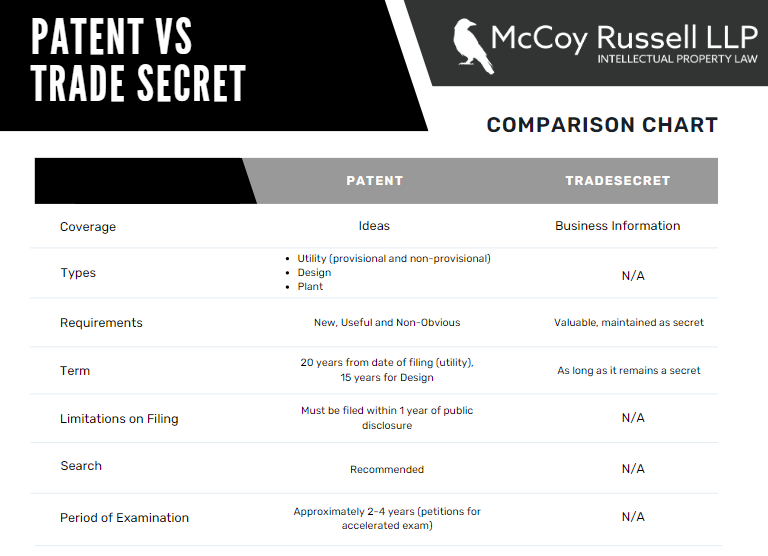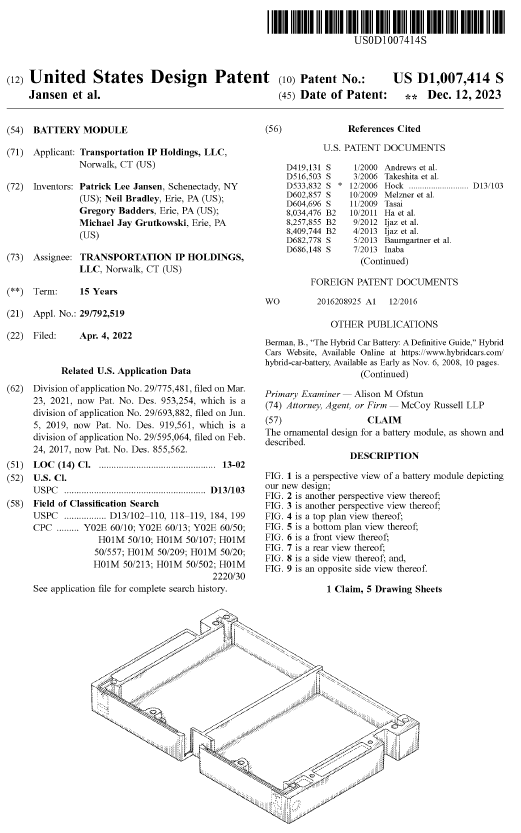
In the world of IP, two significant forms of protection for business innovations and proprietary information are trade secrets and patents. Both serve to safeguard valuable business assets, but they differ in terms of their scope, duration, and methods of enforcement.
Trade secrets encompass confidential business information that provides a competitive edge. Examples include formulas, processes, techniques, or any data not generally known to the public. The primary benefit of trade secrets is their longevity; as long as the information remains confidential, the protection remains in place. Trade secrets can provide indefinite protection as long as they are kept secret. Additionally, the process of obtaining trade secret protection does not require a formal application, making it an immediate and cost-effective option.
However, trade secrets have limitations. If the information becomes public knowledge, either through legal means or unauthorized disclosure, the protection is lost. Furthermore, trade secret holders may have difficulty proving that the information was misappropriated, which can be a challenge in legal battles.
Patents, on the other hand, provide exclusive rights to an invention for a limited period, usually 20 years from the filing date. Patents are granted for inventions that are novel, non-obvious, and useful, such as new devices, processes, or chemical compounds. The patent holder has the right to exclude others from making, using, or selling the patented invention during the patent term.
The benefits of patents include the ability to monetize the invention through licensing or sale and the right to take legal action against infringers. Patents offer strong protection and can be a valuable asset for businesses. However, the patent process can be lengthy and expensive, and once the patent expires, the invention becomes public domain.
McCoy Russell recognizes the strategic decisions necessary to take advantage of both trade secrets and patents and helps counsel and guide clients in developing an approach specific to their business.
Consulting with an intellectual property professional can help businesses navigate when is best to utilize one or the other, or both. McCoy Russell provides educational trainings around the local innovation community, clients, and their development teams to offer guidance on the most appropriate form of protection to maximize the value of their intellectual property and protect their competitive advantage.


